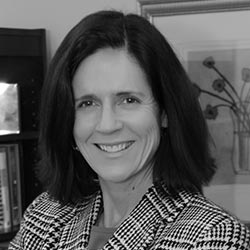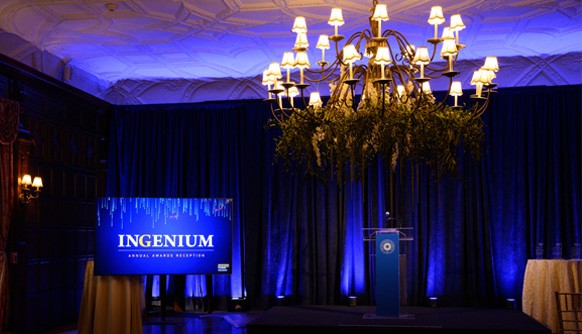News
Alumni Offer Words of Leadership Wisdom
April 9, 2021
Active listening. Empathy. Authenticity. Speaking to your core values. Being open to changing your mind. These are just some of the attributes of successful leaders, according to three New York Institute of Technology alumni participating in the “Truths of Leadership” panel on April 6.
More than 60 students tuned in to hear the Office of Student Life’s Paul Ferrante (M.A. ’18) and Rebecca Weintraub introduce the impressive alumni who would discuss their respective leadership journeys: VP Analyst Soyeb Barot (M.S. ’05) with Gartner; Andrea Klemes (D.O. ’87), chief medical officer at MDVIP; and Tom Scerbo (B.Arch. ’98), senior vice president and Metro New York executive at AECOM.
Like many New York Tech alumni, the panelists started their leadership journey as students and grew to become industry leaders. Lena Hegemann, who is working towards earning an M.B.A. as a member of the Class of 2022, moderated the panel; she started by asking the panelists to speak about the leadership roles they held while in school. Klemes served as president of the student osteopathic organization, which she noted laid the groundwork for future leadership roles; Scerbo started a student club in New York City that “created a bridge” to the architectural industry; and Barot, who was an international student pursuing a master’s degree in computer science, spent a summer as a teaching assistant in the HEOP program, enabling him to engage with both students and faculty.
Barot offered insight into how the concept of leadership has changed during the pandemic. He stressed that it has been more important than ever to demonstrate “engagement and continuous learning” and to “lead from the ground up” given the unprecedented rate of change due to COVID-19.
Klemes advised participants to navigate conflict and bounce back from what might be considered a failure, saying it is critical to “own your decisions and make a plan to remedy resulting ramifications” of those decisions. Scerbo agreed, encouraging students to “acknowledge where you went wrong” and create a feedback mechanism to share best practice.
In terms of how leaders find a balance between personal and professional interactions, Scerbo spoke to the importance of finding mentors and trusted advisors “to help us address our own inherent weaknesses through their perspective.”
And how, exactly, do you find mentors? That question from a student elicited this sage advice: “Be open to new opportunities,” Klemes said.
“Be fearless in reaching out and starting a conversation. Titles don’t matter as much as the role of the mentor,” added Barot.
The virtual event, part of the Student Leaders Summit, was geared towards students participating in the BEAR (Be Engaged And Roar) into Leadership program created by the Office of Student Life to offer opportunities to help students identify and develop their leadership skills.



_Thumb.jpg)

